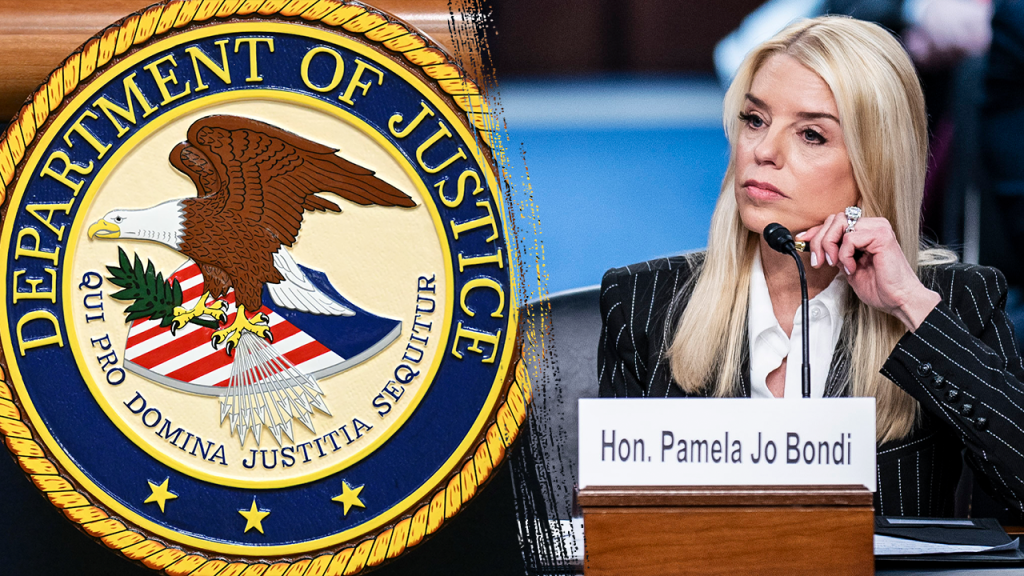In a bold move to enhance governmental efficiency and eliminate wasteful spending, the Justice Department has announced significant budget cuts to various grants that have been deemed unnecessary. Attorney General Pam Bondi highlighted the plan during a recent address, revealing details of the savings from programs that include a range of community initiatives. The total savings amount to millions of dollars, as the department aims to refocus its funding priorities and ensure that taxpayer dollars are used more effectively.
| Article Subheadings |
|---|
| 1) Overview of Budget Cuts Announced |
| 2) Specific Grants Affected |
| 3) Broader Implications for Government Spending |
| 4) Response from Officials and Agencies |
| 5) Future Outlook on Government Efficiency Initiatives |
Overview of Budget Cuts Announced
The Justice Department’s recent announcement of budget cuts is a clear effort to combat wasteful government spending. Attorney General Pam Bondi stated these cuts are part of a larger initiative spearheaded by the Department of Government Efficiency (DOGE). This initiative aims to streamline federal operations and redirect funds to more essential areas. The current financial landscape necessitates a reassessment of how taxpayer money is allocated, and these cuts represent a proactive response to persistent calls for fiscal responsibility within government agencies.
Specific Grants Affected
Among the most notable cuts is $2 million allocated for “national listening sessions of individuals with lived experience,” a program that sought to gather input for government policy from specific community segments. Additionally, $695,000 has been eliminated from a research initiative assessing the effectiveness of police departments’ LGBTQ liaison services. The Justice Department also announced a cut of $250,000 aimed at a program focused on providing gender-affirming care for incarcerated transgender individuals. These decisions have attracted scrutiny from various quarters, with advocates arguing that the funding was crucial for community outreach and support services.
Broader Implications for Government Spending
The Justice Department’s actions reflect a broader trend within the federal government to reduce spending on programs that some view as non-essential or too far removed from traditional government functions. Critics of such funding have long called for a focused strategy to eliminate what they perceive as excessive and ineffective expenditures. Attorney General Bondi emphasized that these decisions align with the department’s goal of prioritizing funding that meets urgent national needs rather than niche projects that may lack widespread support or applicability.
Response from Officials and Agencies
The initiatives undertaken by the Department of Government Efficiency have ignited discussions among legislators and community leaders. Supporters of the budget cuts, including key officials from the Justice Department, have praised these measures as vital to ensuring accountability and financial prudence. Conversely, opponents have raised concerns about the potential impact on programs designed to foster inclusiveness and support marginalized groups. The National Science Foundation previously collaborated with DOGE to terminate hundreds of diversity-related grants, including cancelling 402 programs related to diversity, equity, and inclusion, which saved an additional $233 million. This pattern indicates a significant pivot in federal funding priorities.
Future Outlook on Government Efficiency Initiatives
As the federal government continues to streamline its budget, the effectiveness and long-term impacts of such efforts will likely come under increasing scrutiny. Many analysts suggest the trend towards reducing discretionary spending will continue as part of ongoing efforts to enhance governmental efficiency. With states like Texas considering their own versions of DOGE, this initiative could inspire further movements aimed at redefining how public funds are allocated at both the state and federal levels. Moving forward, the challenge remains for the government not only to cut waste but also to ensure that essential services are adequately funded in areas that require attention and support.
| No. | Key Points |
|---|---|
| 1 | The Justice Department has announced substantial budget cuts to wasteful spending. |
| 2 | Major cuts include $2 million for community listening sessions and related social services. |
| 3 | The cuts are part of a broader initiative by DOGE to eliminate non-essential government expenditures. |
| 4 | Responses are mixed, with advocates for marginalized communities expressing concern over funding loss. |
| 5 | Future spending strategies are likely to prioritize essential services as government efficiency initiatives expand. |
Summary
The recent budget cuts announced by the Justice Department underscore a significant shift in federal spending priorities aimed at reducing waste and reallocating taxpayer resources more effectively. While these changes have been celebrated by some as a necessary correction in government spending, they also raise critical questions about the long-term implications for essential community services and inclusivity programs. As the dialog continues, the focus remains on ensuring that support for vital initiatives is not overshadowed by efforts to streamline federal expenditures.
Frequently Asked Questions
Question: What are the main objectives of the Department of Government Efficiency (DOGE)?
DOGE aims to streamline government operations and eliminate wasteful spending, ensuring that taxpayer dollars are used effectively and redirected towards essential services.
Question: Why were the specific grants cut by the Justice Department?
The grants were cut due to their classification as “wasteful” expenditures, with advocates of the cuts arguing that these programs did not align with current governmental priorities or maximize value for taxpayer investments.
Question: How are officials responding to the budget cuts?
Responses to the cuts are mixed, with some officials praising the decision as necessary for fiscal responsibility, while others express concern over the negative impact on services for marginalized communities.


